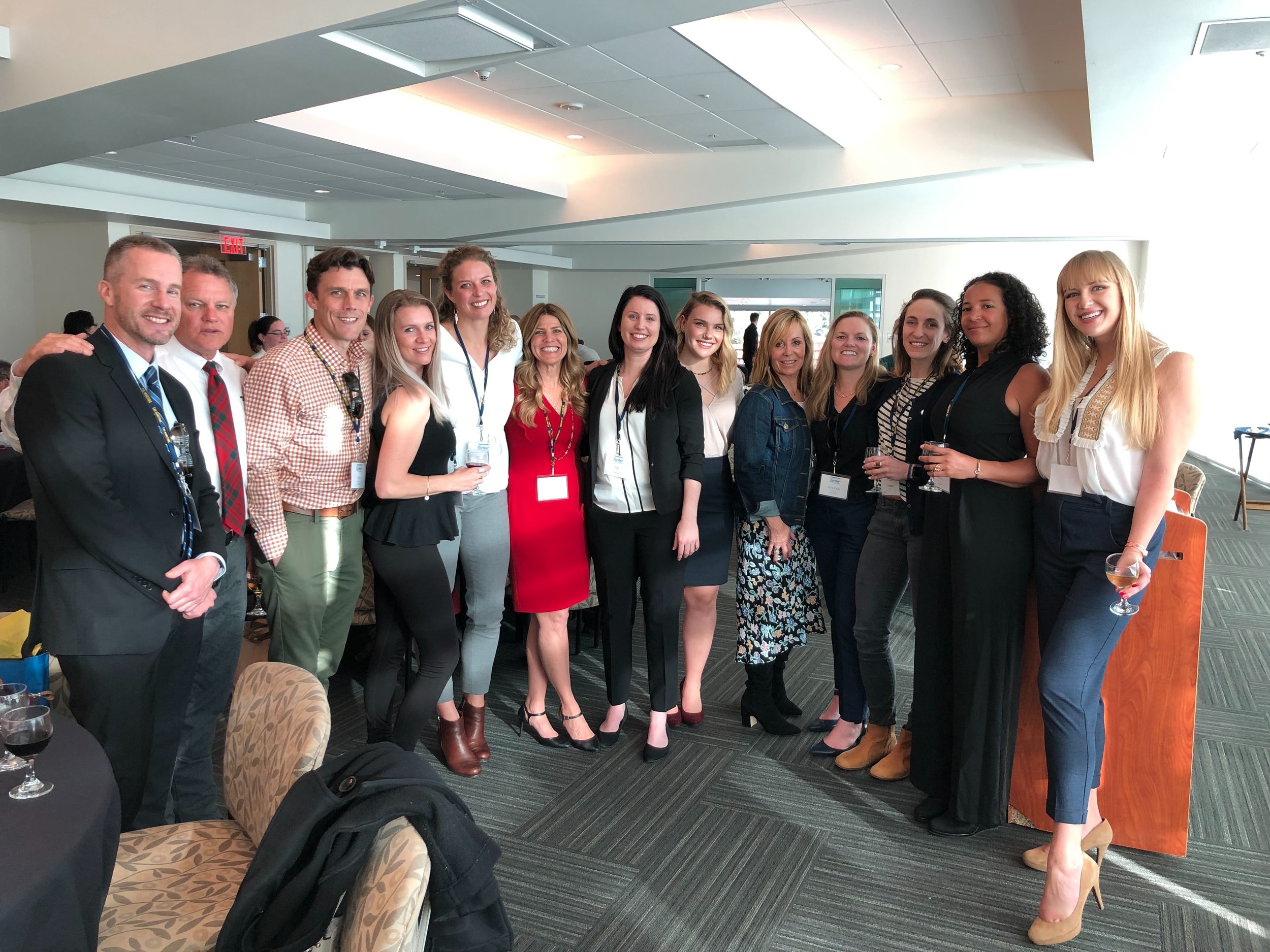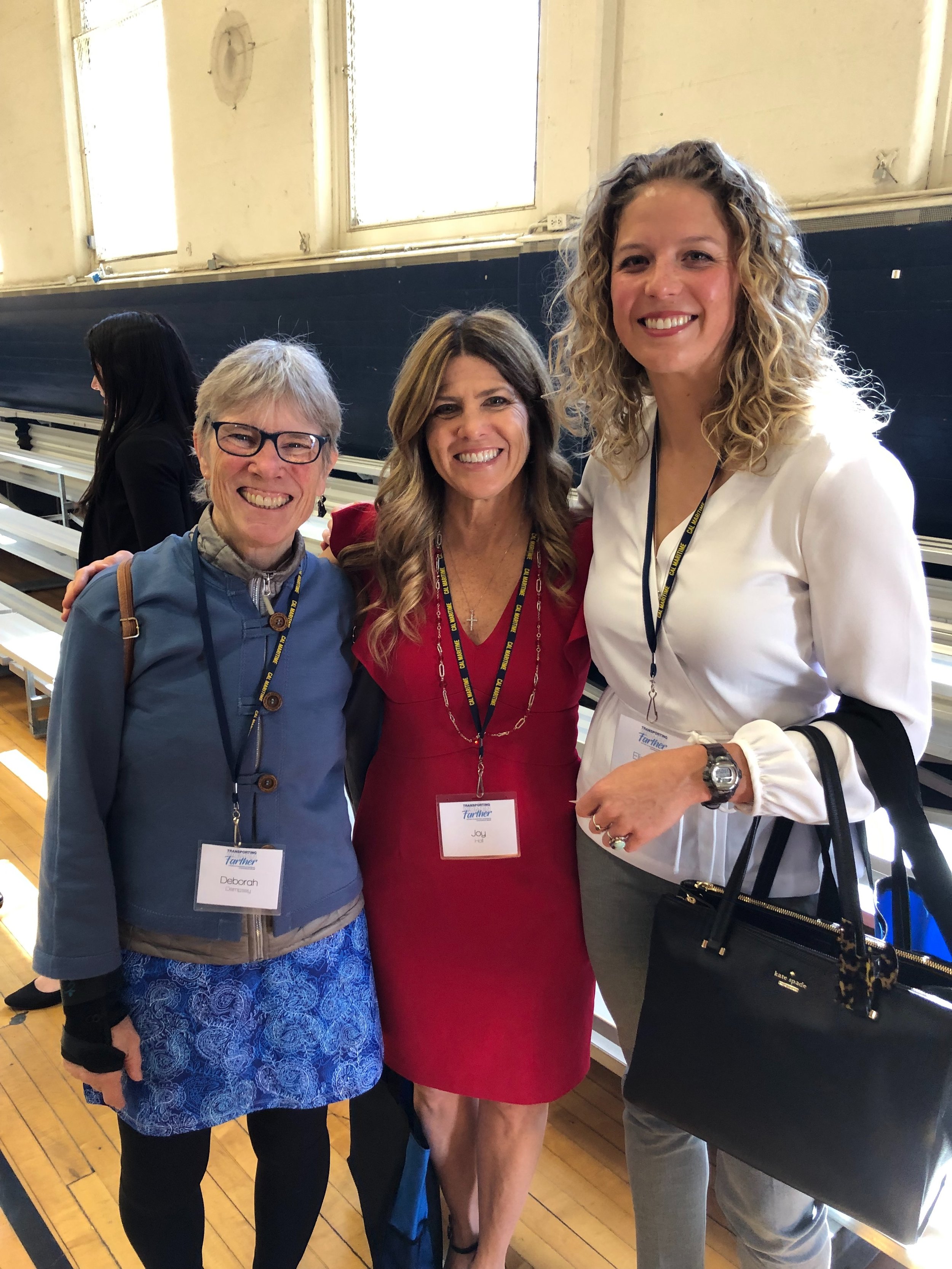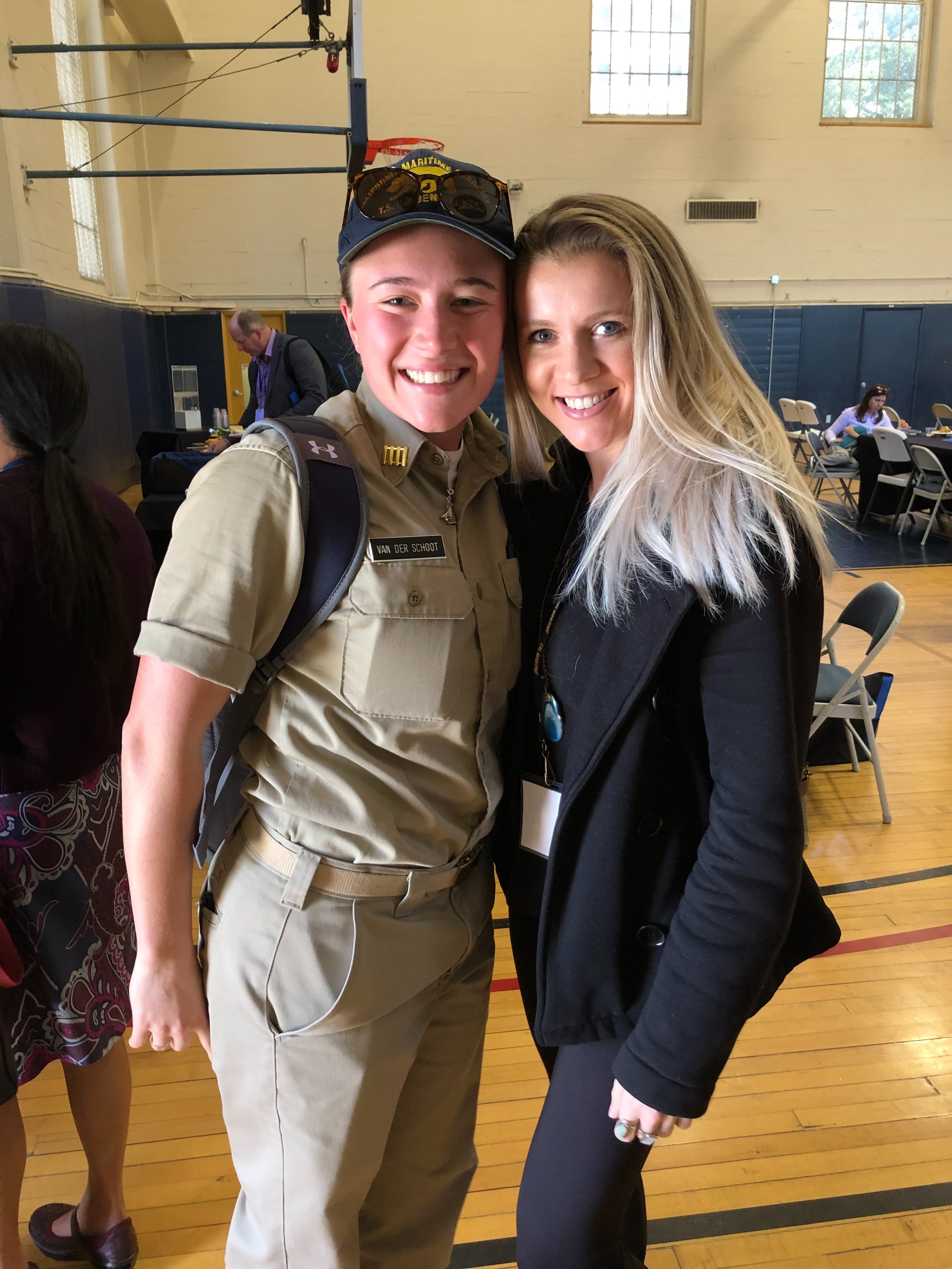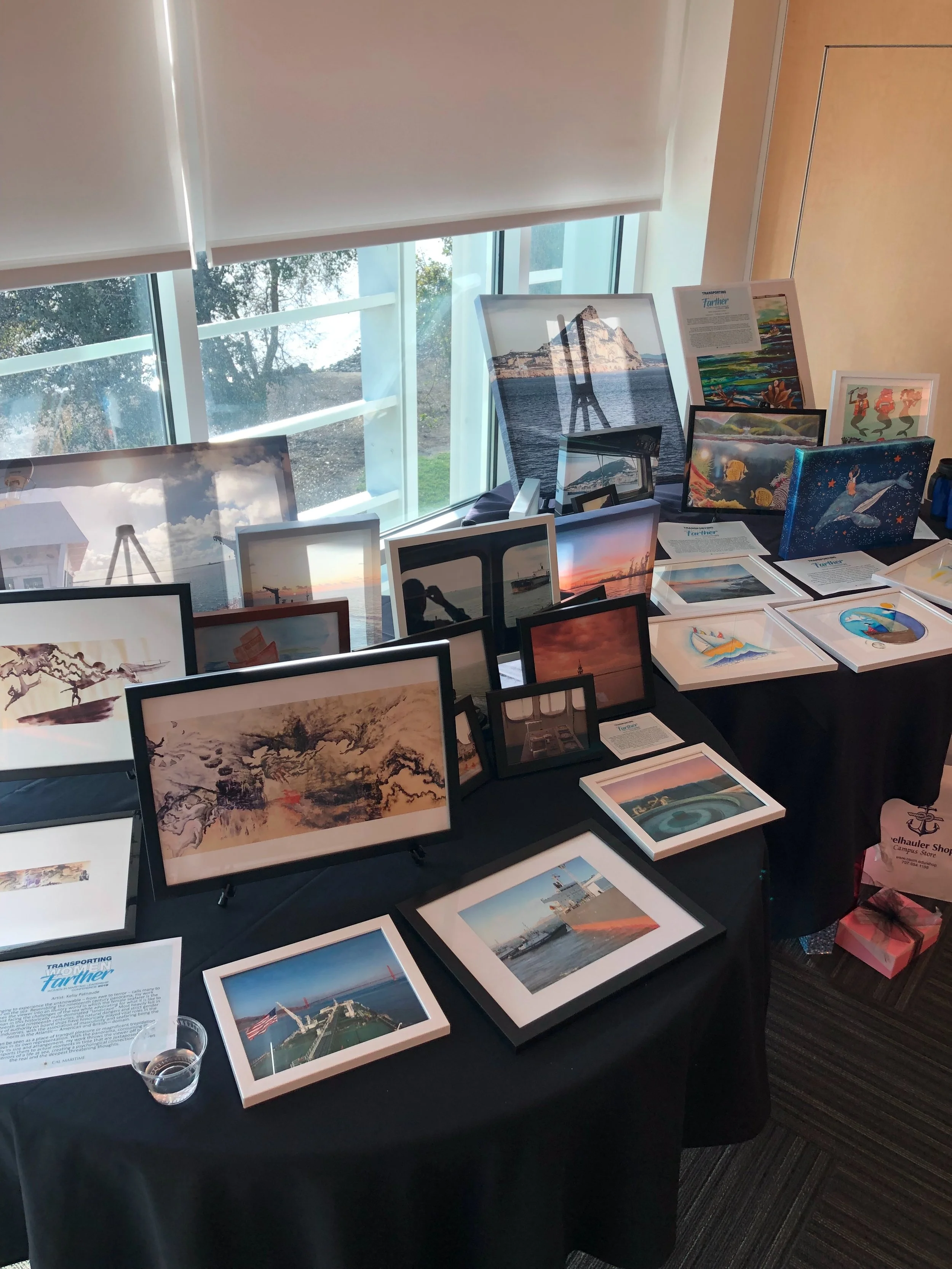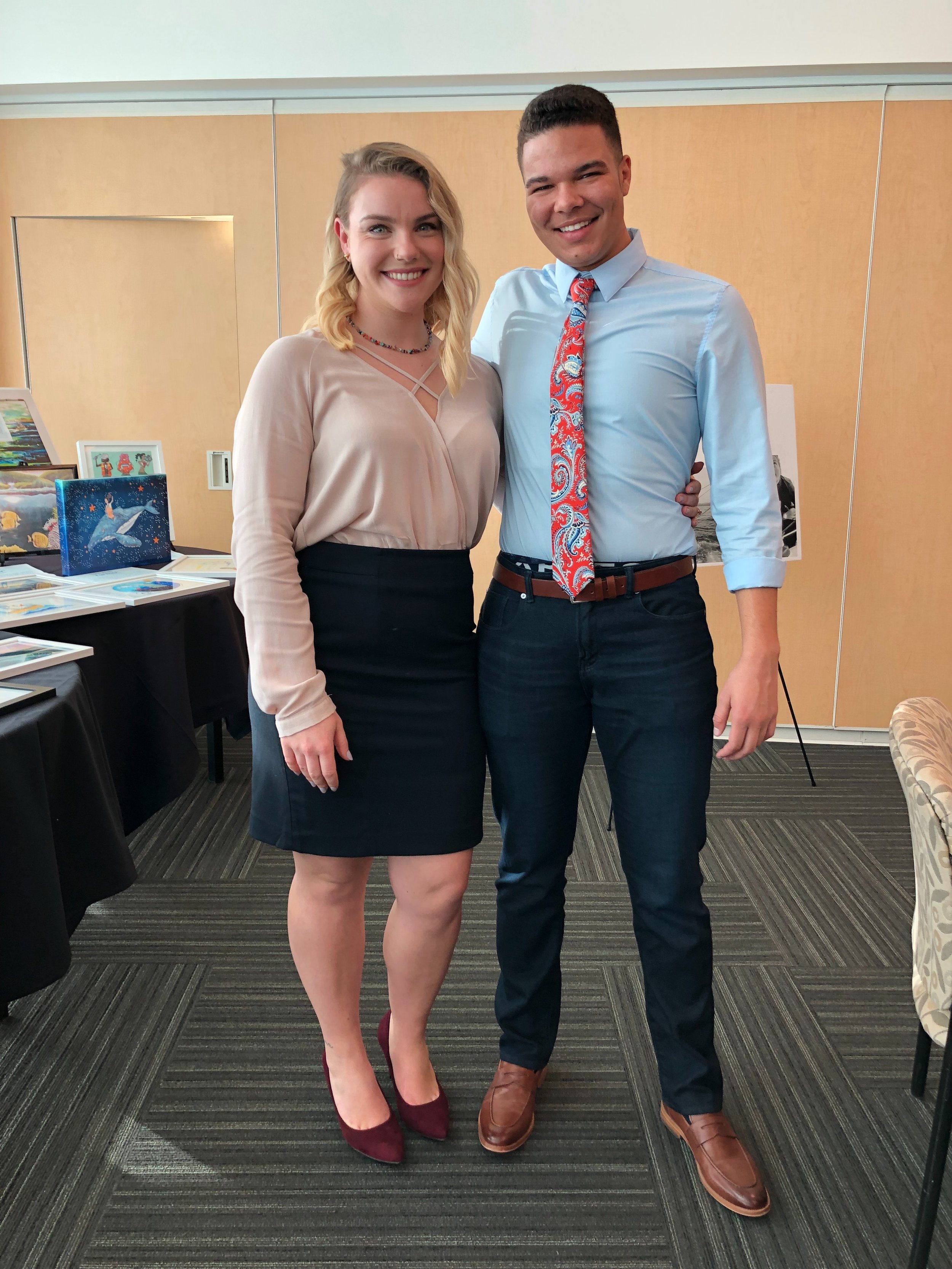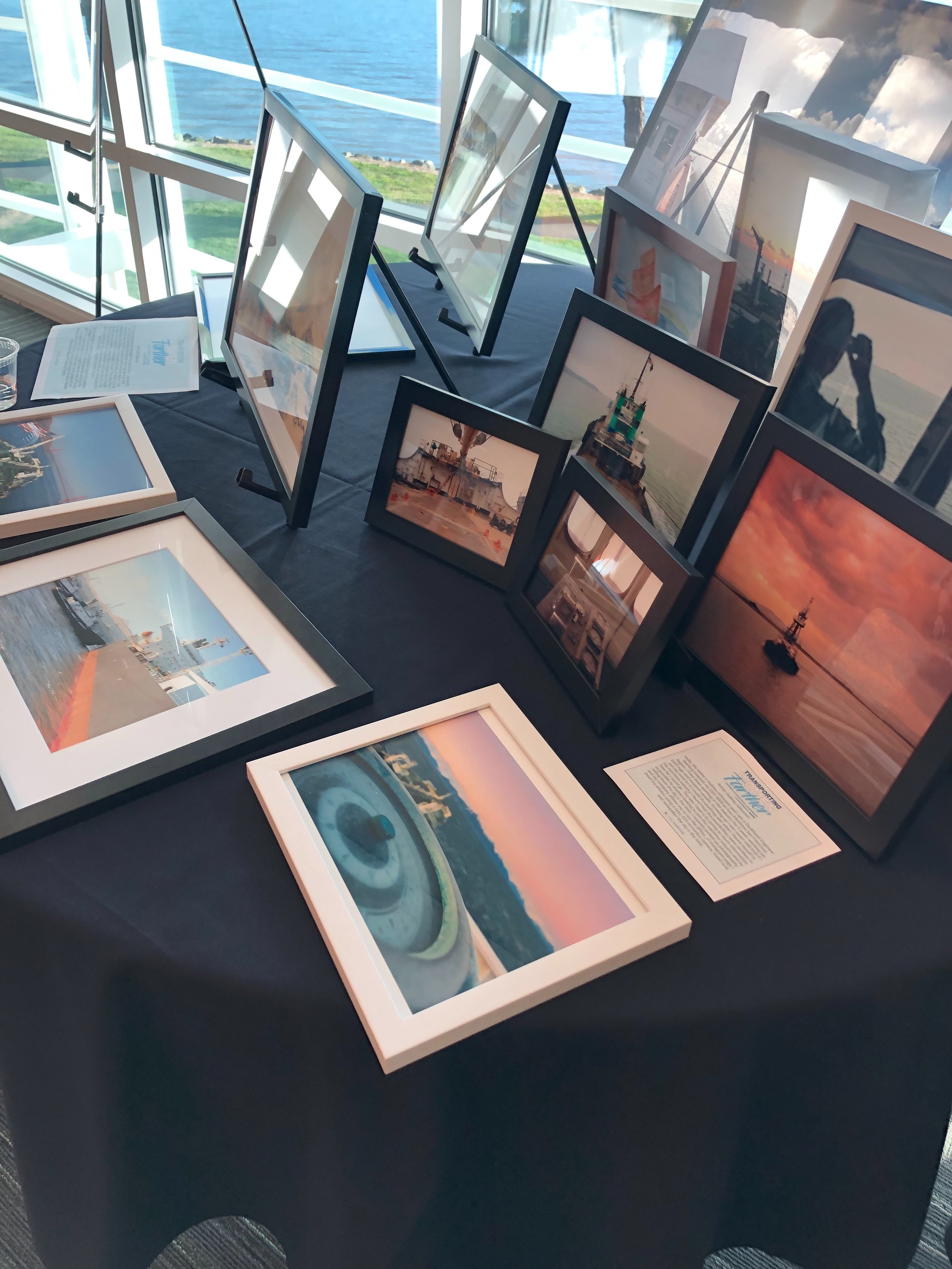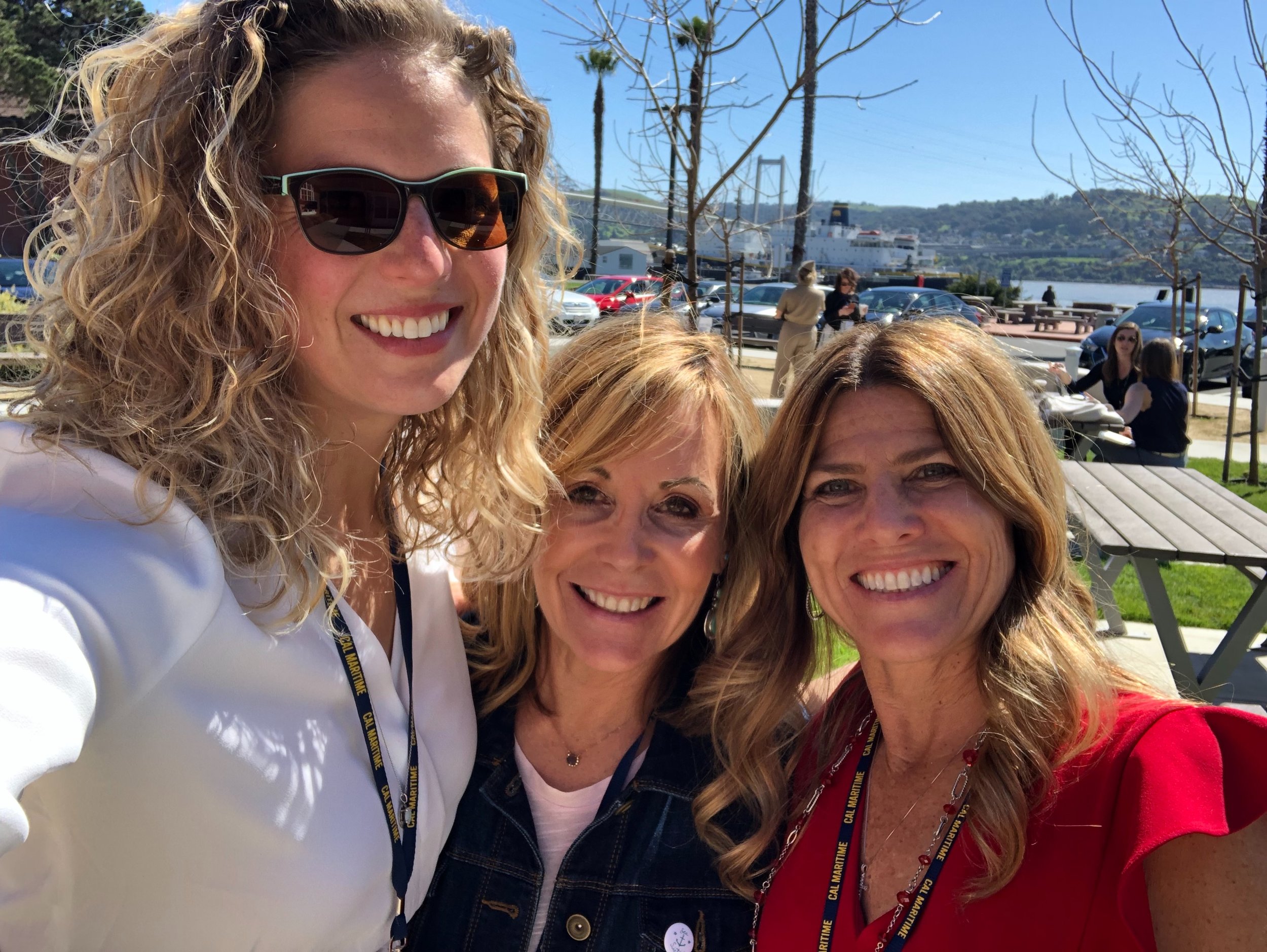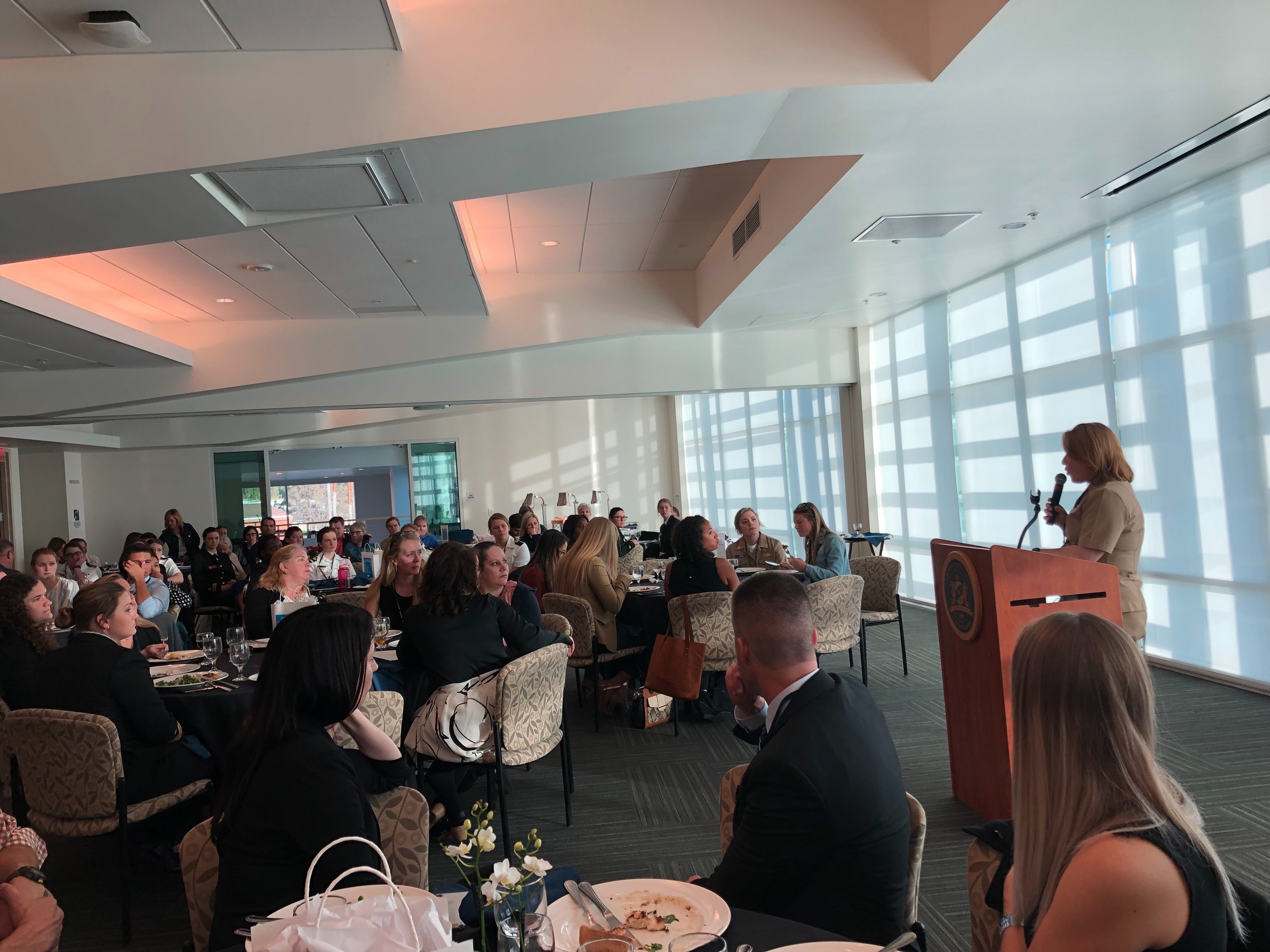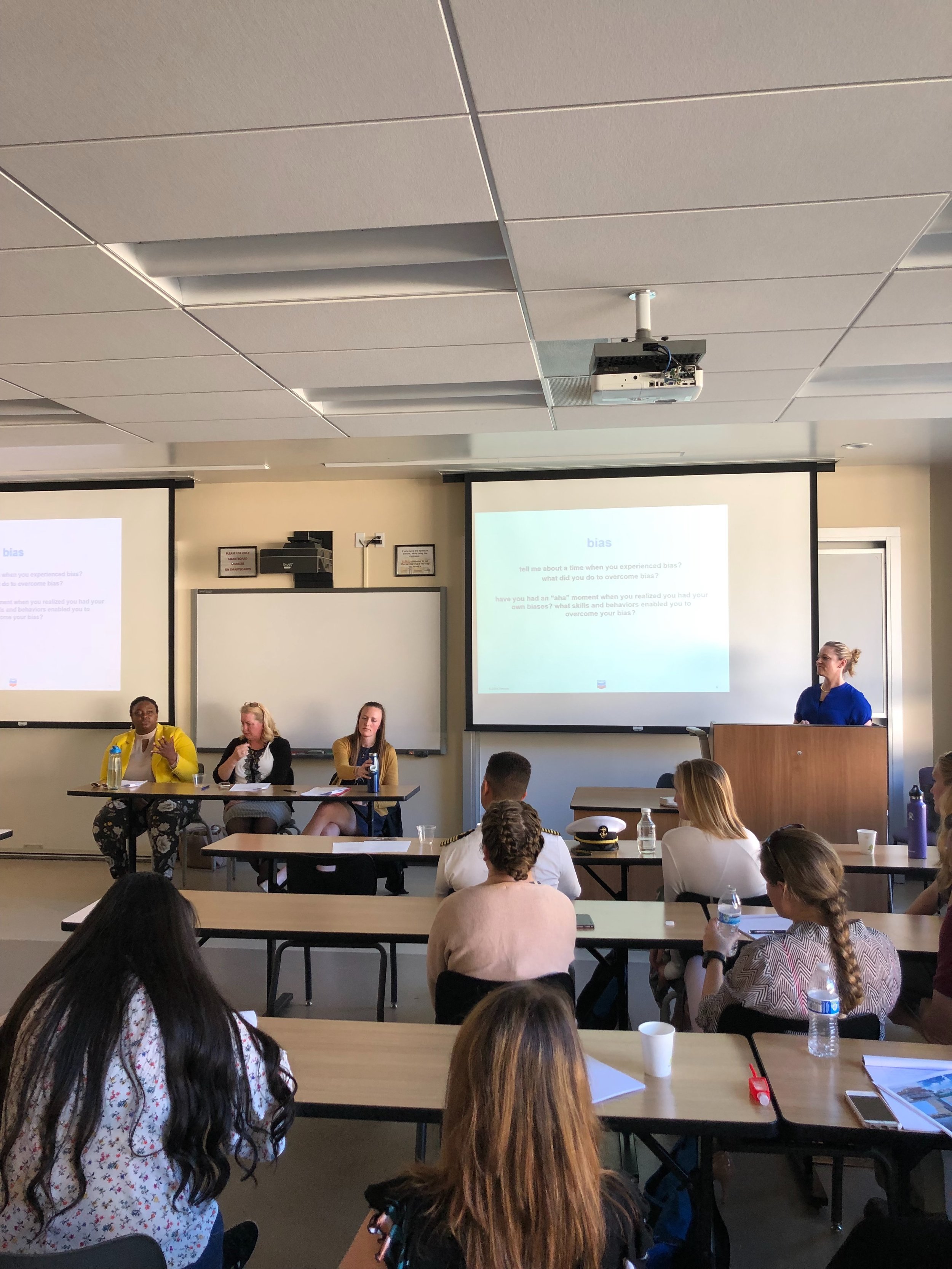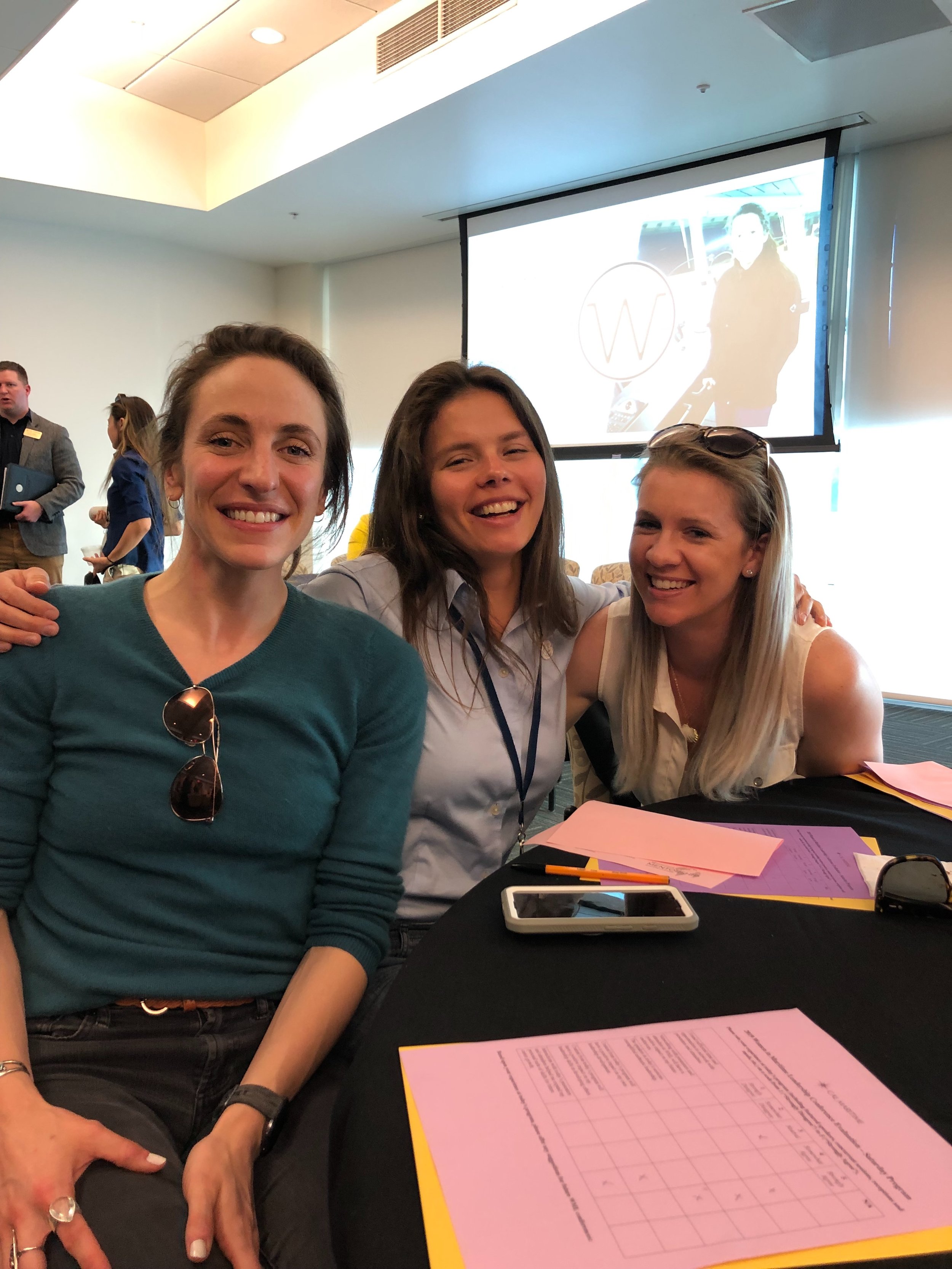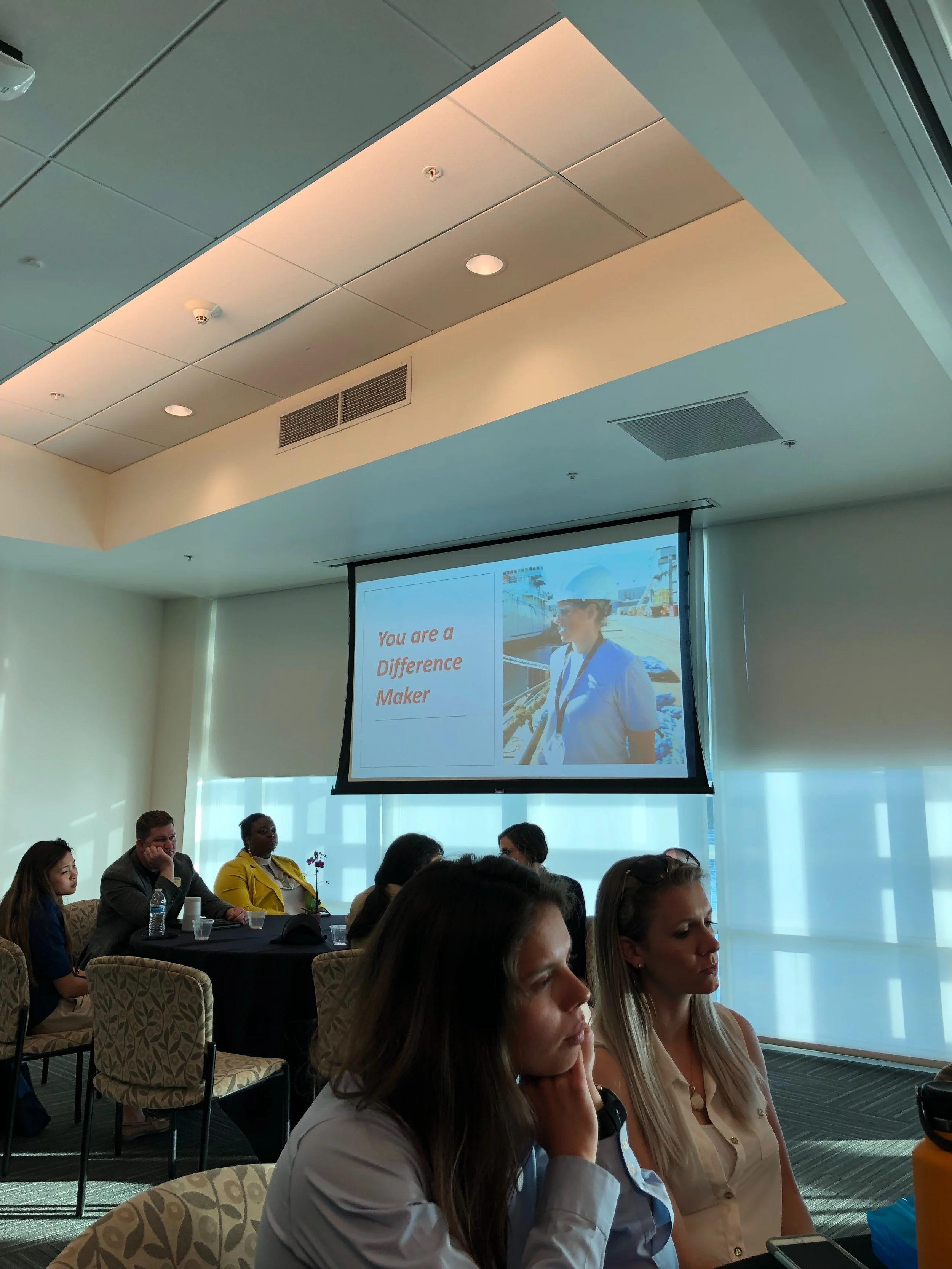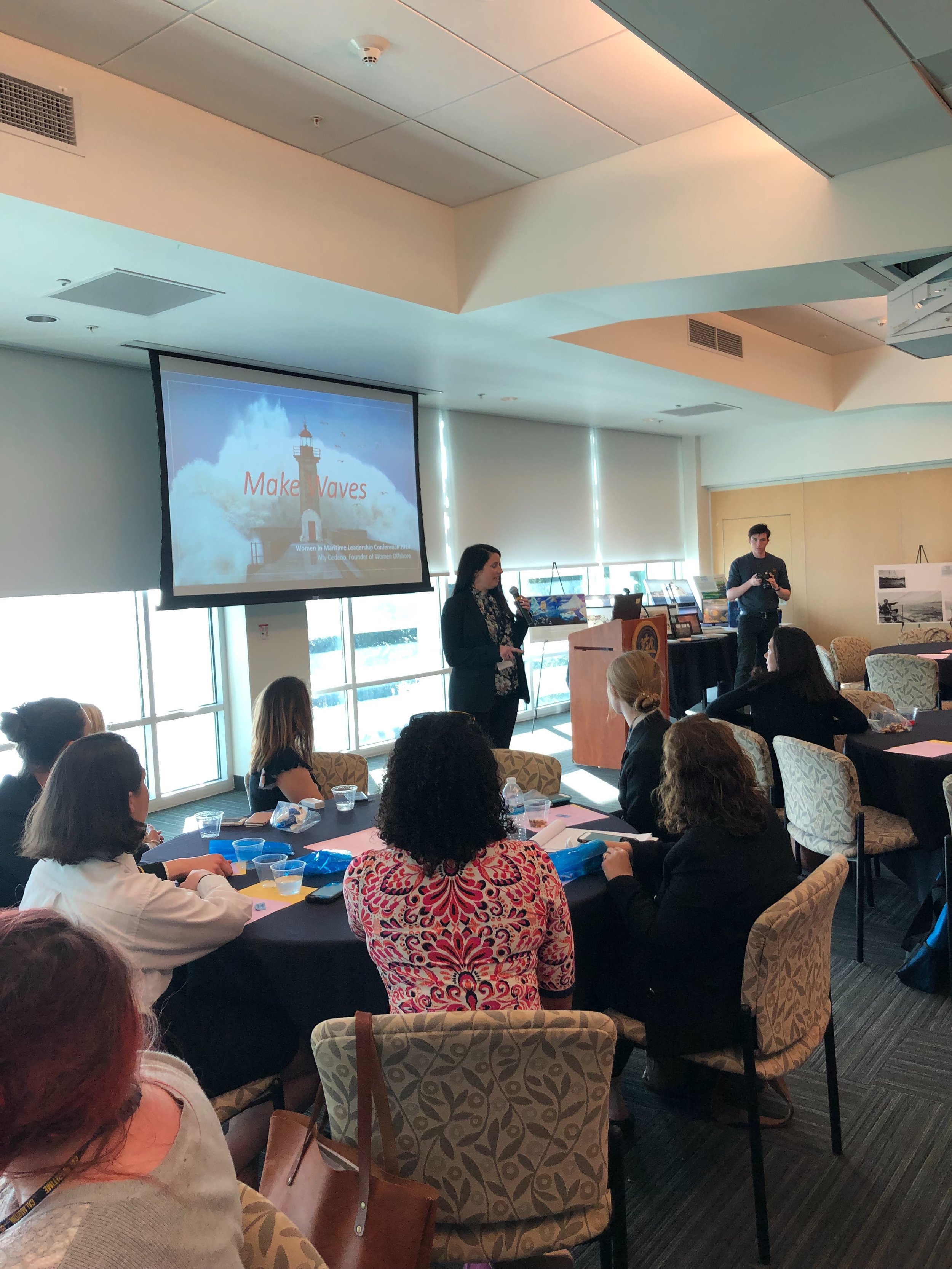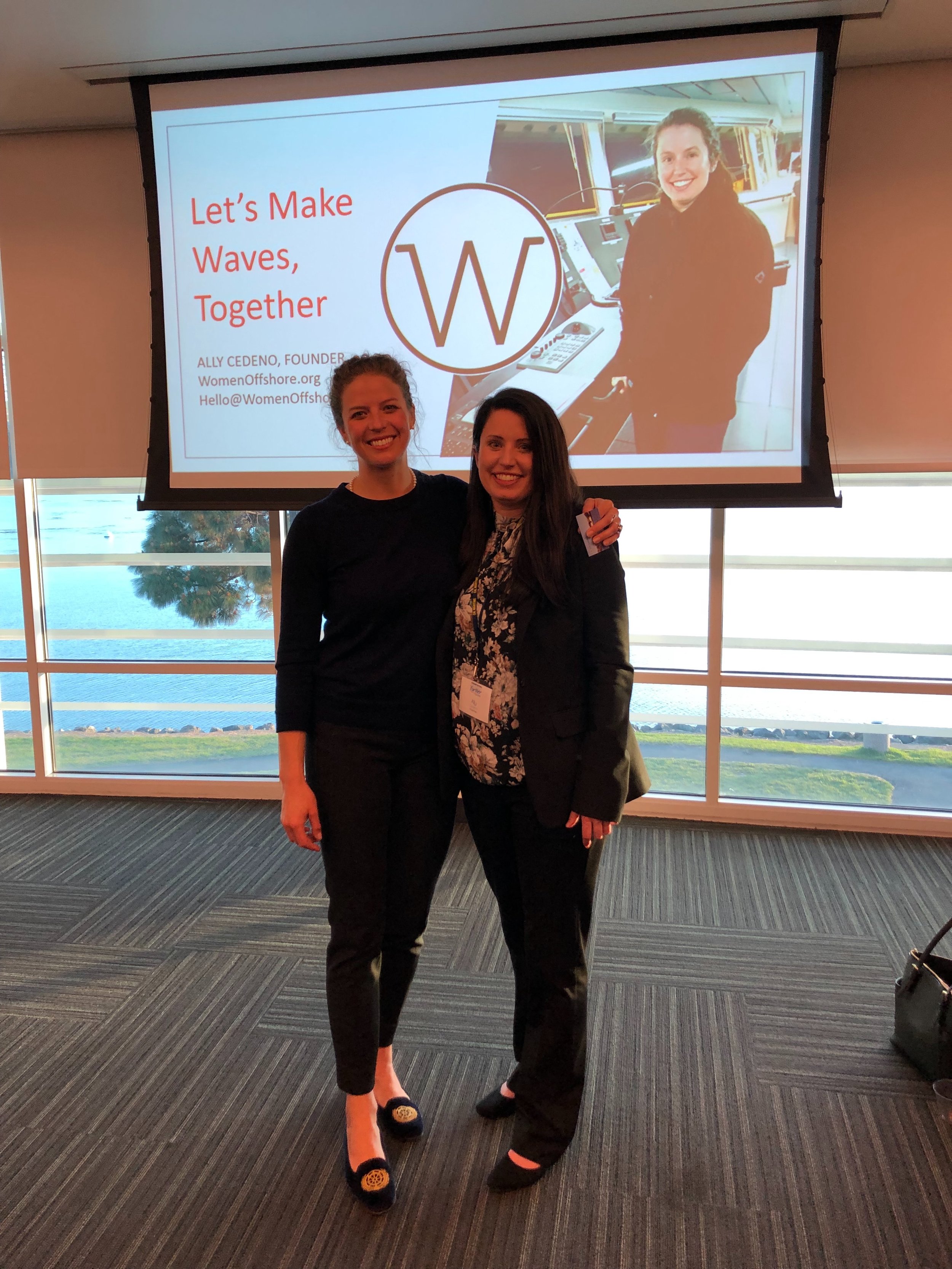It was another great year in Vallejo at the WIML conference on March 15-16! Attendees gathered in the sunshine in Morro Cove for two days to network and learn from a variety of panels and presentations.
On Friday, March 15th, the conference ramped up with presentations on Building a Cohesive Team and Advancing Gender Equity in Maritime, and the rest of the day was notably relaxed, with informal industry topic meet-up sessions following lunch in the afternoon. Many of us relaxed in the sun while chatting with friends and new acquaintances, especially cadets and students both at Cal Maritime and visiting from other schools (young women visiting from Maine Maritime Academy joked that it was perfect spring break weather! Imagine Maine in mid-March, brrrr).
While we enjoyed a delicious dinner in the Compass Room on Friday evening, we were enthralled by a talk given by Captain Jennifer Ellinger of the United States Navy who, upon graduating from the U.S. Naval Academy in 1993, was still not able to serve on a combat vessel due to her gender. Many things have changed in the military since then, and Capt. Ellinger's resumé boasts a long list of achievements, including taking command of the USS LAKE CHAMPLAIN, her most recent assignment. She had such a wealth of wisdom to impart as a Naval Officer, and as a wife and mother, and for me it was one of the most enjoyable and moving presentations of the weekend.
There was also an exhibition of maritime art held at the conference and many wonderful submissions were displayed in a range of media! For more photos of the maritime art exhibit, and of the conference, check out our photo gallery of the event.
On Saturday, March 16th, the keynote presentation and panels on Refining Your Leading Edge and Conflict to Conversation were held in the morning and, after lunch, I had the honor of participating in a panel discussion with fellow presenters Chae Guillot and Christi Calvert. Our panel topic addressed how to develop the individuals on your team: what they need in order to grow, how your actions will help or hinder their growth, and how their development will benefit not only themselves, but the team as well. I was amazed at the level of engagement and participation of our audience; thanks to everyone who attended for making our presentation so enjoyable.
After our panel, we attended an excellent presentation titled "Piloting Shifts in Organizational Culture" featuring four representatives from Chevron who discussed the ways in which Chevron makes diversity and inclusion a part of their company culture. I want to take a moment to highlight some key points the Chevron panelists made about diversity and inclusion:
Pascha McAlister: You can invite people into a room, meeting etc. in the name of "diversity", but they need to also participate and be heard or there is no inclusion. Be consistent, treat everybody the same. Challenge yourself to approach people you wouldn't normally approach.
Amanda Wallace: Supervisors must drive the message that harassment won't be tolerated.
Holly Osen: Don't just tell people what you can give them (e.g. customers); ask them what they need. If you find yourself in a new environment and you wonder if you are qualified, ask yourself "How can I add value?"
Becky Piks: Reflect on your own biases. Make a point of talking to everyone on the team. With regular training, I started to understand what buzzwords like "diversity" really mean in practice.
The conference was wrapped up on Saturday afternoon with a fantastic interactive talk given by our friend Ally Cedeno, founder of WomenOffshore.org, on the importance of mentoring. If you would like to know more about the Women Offshore mentoring program, or to sign up as a mentor or mentee, you can go to https://womenoffshore.org/mentorship.
Takeaways
There were some great key points made in the panel discussions at this conference. Here are some pieces of advice that might be useful not only for cadets who are getting ready to embark on a career, but also for those currently navigating careers on the water:
Address and serve the legitimate needs of your team members. In any work environment, whether on land or at sea, members of a team generally need the same things: to be treated with dignity and respect, to feel like they contribute to the good of the company, to feel safe physically and emotionally, and to feel included in day-to-day operations. By keeping lines of communication open, you can facilitate that feeling of inclusion and respect.
Keep the work environment consistent. As a leader, you are responsible for the tone you set for your crew. In order to develop others, you should always begin with developing yourself. If you are inconsistent or moody, you can be sure it will negatively affect your team's performance.
Don't be afraid to stand up for yourself. Whether you are a superior or a subordinate, you may at some point work with someone who bullies you or "pushes your buttons" in an attempt to rattle or tease you. While this behavior is at best frustrating, the group agreed that there is never anything wrong with standing your ground and drawing the line when it comes to how you wish to be treated. Often, setting this boundary results in more respectful behavior going forward.
Don't treat subordinates as servants. As Captain Ellinger pointed out, she made sure that officers on her vessel bused their own plates in the mess hall. On a navy ship, the steward department is there to serve; not to serve you. If you burden people with extra work by not maintaining the cleanliness of your own space, you do not allow them to fully occupy their roles on board; you do not allow them to reach their fullest potential.
Instead of singling people out for training, make it a group refresher or training session. And if you have the choice, don't reprimand people publicly. Addressing an issue with a crew member can be an awkward and delicate interaction, and should be handled respectfully.
Give honest evaluations! This really can't be stressed enough. Problematic behavior often goes unchecked for years because no one was willing to be honest for fear of hurting someone's feelings. Treat mistakes not as failures, but as learning opportunities. And often, an evaluation can focus on problematic behavior as a safety hazard, which can take the personal edge out of the evaluation process. Above all, remind everyone that constructive criticism is not personal; if you care about a team member, you have an obligation to be honest with them.
Posted by Elizabeth Simenstad

